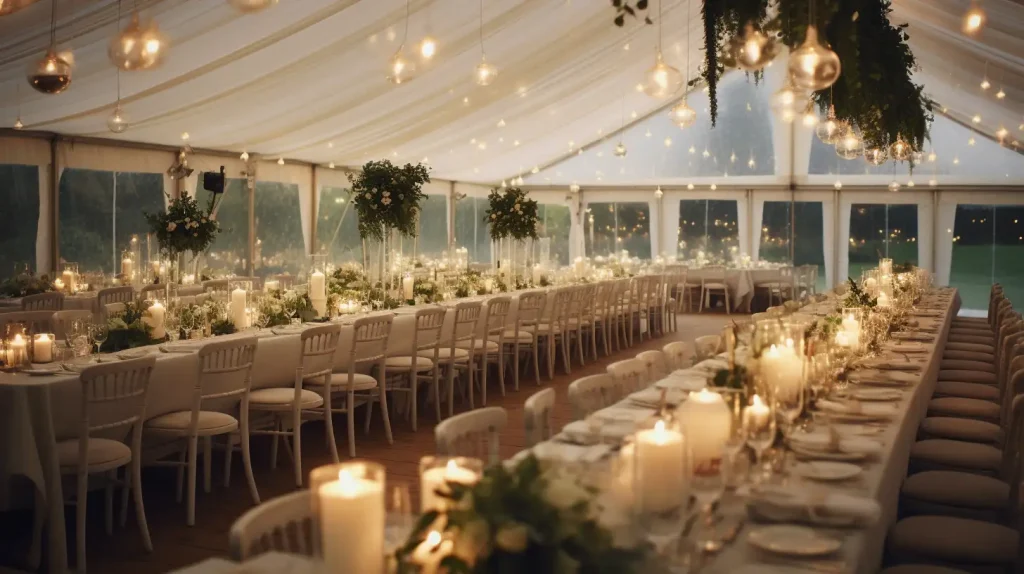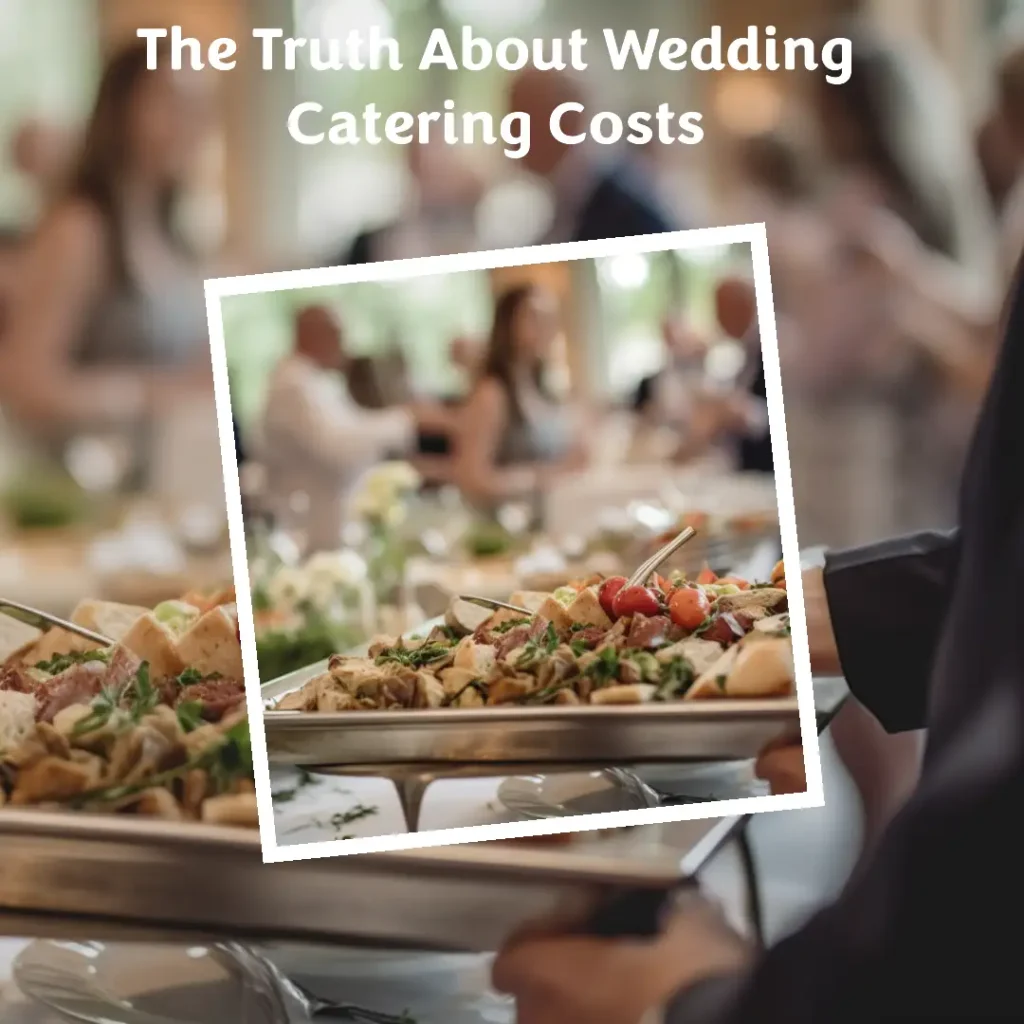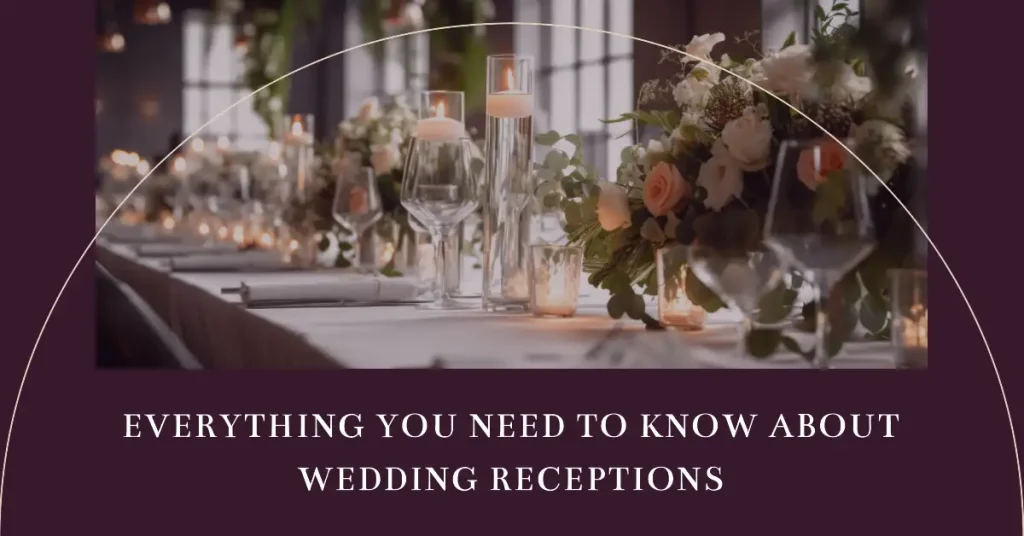Table of Contents
Imagine you’re at a wedding – the couple just said their vows, and everyone is laughing, crying, and cheering. The magic is palpable. But what’s the next thing on everyone’s minds? You guessed it – the food. Catering is a vital part of any wedding, and understanding how it’s costed can make your special day that much smoother.
Setting Your Budget: An Important First Step
Starting on the Right Foot
You’re about to embark on an exciting journey to plan your dream wedding. This journey starts with laying the groundwork, and that means establishing your budget. It’s absolutely crucial to have a clear idea of what you can afford before you dive into the thrilling world of wedding planning.
Balancing Your Priorities
Now, let’s take a moment to think about the big picture – your total wedding budget. It’s like a pie waiting to be sliced up into different portions. As you stand with knife in hand, ready to start divvying up, consider what elements of your wedding are most important to you.
- Carter, Lisa (Author)
- English (Publication Language)
- 107 Pages - 04/06/2024 (Publication Date) - Independently published (Publisher)
Food vs. Other Elements
Does your mouth water at the thought of gourmet appetizers and a sumptuous three-course dinner? Or do you find your heart skipping a beat at the thought of a grand venue or a designer wedding dress? Maybe you’re a music lover and want to allocate more for a live band, or you’re a photography enthusiast who prioritizes a top-notch wedding photographer.
What’s Your Catering Slice?
Once you’ve pondered over these considerations, decide on the slice of your budget pie you’d like to dedicate to catering. Remember, the size of this slice can directly impact the quality and style of food, so if a memorable culinary experience is high on your list, you might want to allocate a bigger portion.
With Budget in Hand, Dive into the Delicious
Having established a clear catering budget, you can now confidently navigate the world of wedding catering. You’re not just walking in blind; you’re armed with the knowledge of what you can spend. This allows you to explore the delicious possibilities within your means, making the journey all the more enjoyable.
In this planning phase, remember that it’s all about balance. A well-planned budget lets you allocate your resources efficiently so that you can truly create a wedding that’s tailored to your dreams and desires.

Understanding Different Types of Wedding Catering
Wedding catering is a world full of flavors, offering a plethora of choices to suit your unique taste and budget. It’s like a culinary journey that can transport you and your guests from the formal elegance of a grand banquet to the casual fun of a beach BBQ. Let’s delve into the different types of wedding catering to see what might tickle your fancy.
Sit-down Meals: The Classic Choice
If you dream of a traditional, formal wedding, a sit-down meal might be your go-to option. Picture your guests seated at beautifully decorated tables, enjoying a carefully curated menu served by a waitstaff. It’s an opportunity to impress your guests and create a classic, memorable dining experience. However, bear in mind, this elegance comes with a price tag. Sit-down meals generally cost more due to service and meal preparation requirements.
Buffet-Style Catering: Variety is the Spice of Life
Should you wish to offer more variety, buffet-style catering might be your best bet. It’s like a culinary carnival, where your guests can sample a bit of everything or pile their plates with their favorite dishes. This type of catering can also be more cost-effective, as it typically requires less service staff. However, the informal queueing aspect might not align with everyone’s vision of their big day.
Food Stations: An Interactive and Trendy Experience
Food stations are a modern, interactive choice that allows guests to mingle and enjoy a diverse range of dishes. Imagine sushi bars, pasta corners, or taco stands, where food is freshly prepared right in front of your guests. This setup creates a dynamic, engaging atmosphere. However, costs can add up quickly if you decide to host multiple food stations, so it’s essential to factor this into your budget.
Casual Options: Embracing the Charm of Simplicity
For the less conventional couple, the casual charm of food trucks or a BBQ can add a fun, relaxed vibe to your wedding. Picture a sunny outdoor setting, the aroma of BBQ wafting through the air, or the sight of a vintage food truck serving delicious gourmet burgers. It’s a different style, but no less memorable or enjoyable. Importantly, this choice can often be accommodated within a smaller budget.
Cost Breakdown: Where Your Money Goes
As you explore catering options for your big day, you’re likely to come across a term that might sound a bit daunting at first – the ‘per-head cost’. This refers to the average cost of feeding each guest at your wedding. But it’s important to note that this cost goes beyond just the plate of food that your guests will be enjoying.
Understanding the Elements of Per-Head Cost
The per-head cost is like a jigsaw puzzle, with many pieces fitting together to form the complete picture. These pieces include:
- Food: This one is pretty straightforward – it’s the cost of the ingredients for the dishes on your menu.
- Labor: From the head chef to the kitchen staff, servers, and bartenders, it takes a team to ensure a smooth dining experience. The cost of their time and expertise forms a significant chunk of the per-head cost.
- Rentals: Depending on your catering package, you may also need to factor in the cost of rentals. This can include items like dinnerware, glassware, table linens, serving utensils, and more.
- Additional Costs: Lastly, there are other costs to consider, such as travel, setup, and breakdown. These can add to the overall per-head cost, particularly if your venue is far from the caterer’s base location.
Comparing Quotes with Confidence
Understanding the breakdown of the per-head cost can help you make an apples-to-apples comparison when evaluating quotes from different caterers. One caterer’s quote might seem more expensive, but it could include elements like rentals and setup that another caterer might bill separately. Having clarity on what is included in each quote is key to making an informed decision.

The Impact of the Wedding Venue on Catering
When it comes to planning your wedding, your choice of venue can significantly influence your catering options and costs. It’s like choosing the stage for a grand performance; the backdrop can enhance or limit the performance options.
On-site Catering: A Convenient Option?
Many venues offer on-site catering, which could be an alluring option for several reasons. Firstly, there’s a certain convenience in having a ‘one-stop-shop’ for your venue and food needs. Secondly, since the catering team is familiar with the venue layout and facilities, operations often run smoothly. Lastly, this can potentially be a more cost-effective option, as package deals might be available.
Choosing Your Own Caterer: Flexibility at a Price
However, you might find your heart set on a specific caterer whose food you’ve tried and loved. In this case, you would likely lean towards venues that allow external caterers. This choice offers flexibility and personalization but bear in mind that it might add to the overall costs. In addition to the caterer’s charges, you might also need to pay a kitchen or venue fee.
Understanding Venue Rules and Restrictions
It’s also crucial to remember that each venue comes with its own set of rules and restrictions, which could impact your catering decisions. Some venues might have a preferred caterers list, or they might charge a corkage fee if you want to bring your own alcohol. Others might have limitations regarding food trucks due to space or local regulations. It’s important to ask these questions early on to avoid any unexpected surprises or costs.
Decoding the Catering Contract
Catering Contract: Your Guide to Understanding Costs
A catering contract is like a roadmap that outlines your journey with your caterer. While it might initially seem like a jungle of legal jargon, it’s vital for understanding exactly what you’re paying for. Don’t worry, let’s break it down together.
The Inclusions: Service Staff, Setup, and Breakdown
Look for details about the staff that the caterer will provide. Does it include servers to dish out the food and bartenders to keep the drinks flowing? If you’re planning a sit-down dinner, you might need more staff than for a buffet-style meal.
Also, check if the contract includes setup and breakdown. These tasks require time and effort, and it’s important to know if these are part of the package or if there will be additional charges.
Hidden Extras: Overtime, Travel, and More
Next, keep an eye out for any extra charges. What happens if the party runs longer than expected? Will there be an overtime fee? If your venue is far from the caterer’s base, are there travel charges? Unforeseen expenses can quickly add up, so it’s crucial to understand these from the outset.
Ask Questions, Seek Clarifications
Don’t be shy about asking questions or seeking clarifications. This is your special day, and you deserve to know what you’re getting for your hard-earned money. If something isn’t clear or seems unreasonable, speak up.
Negotiation: The Art of Crafting a Win-Win Deal
And remember, a contract isn’t set in stone until it’s signed. You have room to negotiate. If there’s something you’re not comfortable with, discuss it with your caterer. They may be willing to adjust terms to earn your business.

Alcoholic Beverages: To Include or Not?
Navigating the World of Wedding Spirits
One of the questions that often pops up during wedding planning is whether to include alcohol. It’s like deciding on the seasoning for a dish – it can certainly add flavor, but it needs to be done just right.
Open Bar: A Party Favorite
An open bar is like an endless river of beverages, free for all guests to enjoy. It can be a wonderful way to make the party lively and ensure that your guests have a good time. Picture your friends and family raising a glass (or two) to toast your happiness. However, like all good things, it comes with a price. An open bar can significantly inflate your catering bill and should be factored into your budget.
Cash Bar or BYOB: Cost-effective Alternatives
If the costs of an open bar seem daunting, there are other options to consider. A cash bar, where guests pay for their own drinks, can help curb costs. Alternatively, a BYOB (Bring Your Own Beverage) policy allows guests to bring their favorite drink, adding a personal touch to the celebration.
While these options are certainly more budget-friendly, they might not be as popular with guests. Some people might see them as less generous or hospitable. It’s a delicate balance, and ultimately, you need to choose what feels right for you.
Consider Your Guest List and Desired Atmosphere
When making this decision, consider your guest list and the atmosphere you’d like to create. If your crowd includes many wine connoisseurs or cocktail lovers, an open bar might be appreciated. However, if your guest list consists mainly of non-drinkers or light drinkers, a cash bar or BYOB policy might be more appropriate.
Making Your Catering More Cost-Effective
Smart Decisions for a Savvy Wedding Feast
Good food doesn’t always have to come with a hefty price tag. With a bit of savvy planning and a pinch of creativity, you can design a mouth-watering menu that won’t blow your budget.
Negotiating with Your Caterer: The Power of Conversation
Start by having an open conversation with potential caterers. If a quote comes in over budget, don’t dismiss it outright. Ask them to break down the costs and see where there might be room for negotiation. You’d be surprised how flexible some caterers can be to secure your business.
Embracing Local and Seasonal Food: Fresh, Affordable, and Delicious
Consider leaning into the charm of local and seasonal food. These options are often fresher, cheaper, and have a lower environmental impact. Plus, they can add a unique touch to your menu. Imagine serving fresh strawberries and cream in the summer, or a hearty pumpkin soup in the fall.
Presentation and Seasoning: Turning Simple into Spectacular
Remember, even less expensive dishes can be transformed into gourmet delights with the right presentation and seasoning. A simple pasta dish can be elevated with a sprinkling of fresh herbs and a drizzle of quality olive oil. A plain chicken breast becomes a feast when marinated with spices and paired with a vibrant salsa.
Dietary Restrictions and Allergies: The Hidden Cost
Navigating the Dietary Landscape
In the diverse world we live in today, you’re bound to have guests with various dietary needs. From gluten-free, vegetarian, and vegan diets to allergies and religious dietary laws, it’s important to take these factors into account when planning your wedding menu.
Understanding Your Guests’ Needs: The First Step
Begin by gaining an understanding of your guests’ dietary restrictions. You could include a section on your RSVPs asking guests to indicate any dietary restrictions, or you could reach out directly. The more accurate your information, the better you can plan for these needs.
Working with Your Caterer: A Collaborative Approach
Discuss these dietary needs with your caterer. Many caterers are well-versed in creating delicious dishes for a variety of dietary restrictions and may already have options on their menus. However, be prepared that some caterers may charge extra for special dietary options.
The Hidden Cost: A Necessary Consideration
While it might be seen as a hidden cost, accommodating dietary restrictions is an essential part of hosting a thoughtful and inclusive wedding. After all, everyone should be able to partake in the joyous feast! And while it may add to the overall costs, the assurance of knowing that all your guests can enjoy the meal without worry is truly priceless.

Tasting Session: A Must-do Before Finalizing
The Exciting Culinary Adventure Before the Big Day
So, you’ve done your research, shortlisted your caterers, and crafted a potential menu. But how do you know if the food is really as delicious as it sounds on paper? That’s where the tasting session comes in.
Tasting Sessions: A Culinary Test Drive
Think of a tasting session as a culinary test drive. This is your opportunity to sample the caterer’s offerings and see if they live up to your expectations. It’s also your chance to see how the food is presented and how well it pairs with your chosen drinks.
Dialogue with the Chef: A Creative Exchange
These sessions are also a great opportunity to have a direct dialogue with the chef. You can discuss your ideas, share your preferences, and ask for their professional advice. This kind of collaboration can often lead to an even better menu, tailored to your specific tastes and vision.
The Cost of Tasting: A Worthy Investment
Keep in mind, though, some caterers do charge for tasting sessions. But rather than viewing it as an additional cost, consider it a worthwhile investment in your overall culinary satisfaction. It’s a small price to pay for ensuring that your wedding menu will be everything you’ve dreamed of.
Case Studies: Real-world Catering Costs
We can talk about catering costs all day, but let’s look at some real-life examples. Consider Sam and Alex, who opted for a sit-down meal at a swanky city venue and ended up paying a premium. Then there’s Jamie and Pat, who saved on catering costs by choosing a casual food truck buffet at a park. And let’s not forget Taylor and Reese, who negotiated a fantastic deal with their caterer by opting for local, seasonal foods. Every couple’s story is unique, but they all demonstrate that a bit of creativity and flexibility can help balance your dream wedding with your budget.
Conclusion
So, what’s the answer to the big question: How much for wedding catering? It varies, based on your choices, your venue, your location, and numerous other factors. But armed with the information you now have, you’re prepared to navigate the world of wedding catering like a pro. Remember, it’s your day – don’t be afraid to ask questions, negotiate, and prioritize what’s important to you. Here’s to a wedding feast that satisfies both your taste buds and your wallet.
FAQs
Q: How much does wedding catering typically cost?
A: Wedding catering costs can vary significantly depending on various factors such as the number of guests, menu choices, service style, location, and any additional services or upgrades. On average, couples can expect to spend anywhere from $50 to $150 per guest.
Q: What are the main factors that influence wedding catering prices?
A: The main factors that influence wedding catering prices include the number of guests, the complexity and variety of the menu, the level of service desired (e.g., buffet, plated, or family-style), the reputation and experience of the caterer, the season and location of the wedding, and any special dietary requirements.
Q: How far in advance should I book a wedding caterer?
A: It’s best to book a wedding caterer as early as possible, ideally six to twelve months in advance. Popular caterers can get booked quickly, especially during peak wedding seasons, so securing your preferred caterer well in advance ensures you have more options and can avoid any last-minute disappointments.
Q: What should I consider when choosing a wedding caterer?
A: When choosing a wedding caterer, consider their reputation, experience, and reviews from previous clients. It’s important to have a clear understanding of their menu options, service styles, and any specific dietary accommodations they can provide. Meeting with potential caterers and discussing your vision, budget, and expectations can help determine if they are the right fit for your wedding.
Q: Can I customize the menu according to my preferences?
A: Yes, most caterers offer customization options to tailor the menu to your preferences. They can work with you to create a personalized menu that reflects your taste, dietary needs, and wedding theme. Don’t hesitate to communicate your ideas and requests to the caterer, as they are typically willing to accommodate your vision as much as possible.
Q: Can I provide my own alcohol for the wedding? Are there any restrictions or corkage fees?
A: Many venues and caterers allow you to bring your own alcohol for the wedding. However, it’s important to check with your caterer and venue about any restrictions or corkage fees that may apply. Some venues may have specific policies regarding the types and quantities of alcohol allowed, and there might be a corkage fee for serving alcohol that was not provided by the caterer.
Q: Are there any additional services that caterers can provide besides the food?
A: Yes, caterers often offer additional services to enhance the wedding experience. These services may include providing waitstaff and bartenders, setting up and decorating the dining area, arranging rental equipment, managing the timeline and coordination of the meal service, and even assisting with cake cutting and serving. Discuss with your caterer to see what additional services they offer.
Q: What happens if there is leftover food after the wedding?
A: The handling of leftover food depends on the policies of your caterer. Some caterers may allow you to keep the remaining food, while others may have specific guidelines or restrictions. It’s important to discuss this with your caterer beforehand to understand their policies regarding leftovers, including potential charges or arrangements for donation or disposal.
Q: Are gratuities included in the catering cost?
A: Gratuity is not always included in the catering cost. Some caterers include a service charge or gratuity as part of their overall pricing, while others leave it to the discretion of the clients. It’s important to clarify with your caterer whether gratuity is included or if it should be added separately. If it’s not included, it’s customary to tip the catering staff based on their service and your satisfaction.
Q: Can I make changes to the catering menu after it’s been finalized?
A: It is typically possible to make changes to the catering menu even after it has been finalized, but this may depend on the caterer’s policies and the timing of the changes. Keep in mind that significant changes or additions may incur additional costs, and certain menu items may have specific preparation requirements. It’s best to communicate any desired changes to the caterer as early as possible to discuss feasibility and any potential adjustments.
Q: What happens if there is an unexpected issue or emergency on the wedding day?
A: In the case of unexpected issues or emergencies on the wedding day, professional caterers are experienced in handling such situations. They are typically equipped to handle unforeseen circumstances, such as adjusting the timeline, making alternative arrangements, or adapting the menu if necessary. It’s essential to have open communication with your caterer throughout the planning process, so they are aware of your needs and can respond accordingly.
Q: Can I request a sample contract or agreement before finalizing the catering booking?
A: Absolutely! It is recommended to request a sample contract or agreement from your caterer before finalizing the booking. This contract will outline the terms and conditions, services provided, pricing details, payment schedule, cancellation policies, and any other important aspects. Reviewing the contract thoroughly will help ensure that both parties are on the same page and that your interests are protected.
Key Takeaways
- Setting Your Budget: It’s important to establish a clear idea of what you can afford before diving into wedding planning.
- Balancing Your Priorities: Consider what elements of your wedding are most important to you and allocate your budget accordingly.
- Types of Wedding Catering: Explore different types of catering options such as sit-down meals, buffet-style catering, food stations, and casual options like food trucks or BBQ.
- Cost Breakdown: The per-head cost includes factors like food, labor, rentals, and additional costs like travel and setup.
- Comparing Quotes: Understand the breakdown of the per-head cost to make an informed decision when comparing quotes from different caterers.
- Venue Influence: Your choice of venue can significantly impact catering options and costs, so consider the venue’s policies and restrictions.
- Catering Contract: Understand the inclusions, hidden extras, and negotiate terms with your caterer to ensure a win-win deal.
- Alcoholic Beverages: Decide whether to include an open bar, cash bar, or BYOB policy, considering your guest list and desired atmosphere.
- Making Catering Cost-Effective: Negotiate with caterers, embrace local and seasonal food, focus on presentation and seasoning, and consider dietary restrictions.
- Tasting Session: Schedule a tasting session to sample the caterer’s offerings, discuss preferences, and finalize the menu.
COPYRIGHT NOTICE
Please be advised that all images, designs, and creative content on this page are the exclusive property of TheIDoGuide.com and are protected under international copyright laws. The images may not be reproduced, copied, transmitted or manipulated without the written permission of TheIDoGuide.com.
Unauthorized use, distribution, display, or creation of derivative works of any images contained on this site, is strictly prohibited and can lead to legal penalties. We actively monitor for, and enforce, our copyright interests.
If you wish to use any of our images, kindly contact us to seek permission. Respect of copyright is not merely a legal requirement but also an acknowledgement and support of the hard work and creativity that goes into producing them.
Thank you for your understanding and cooperation.
© 2023, TheIDoGuide.com. All Rights Reserved.






